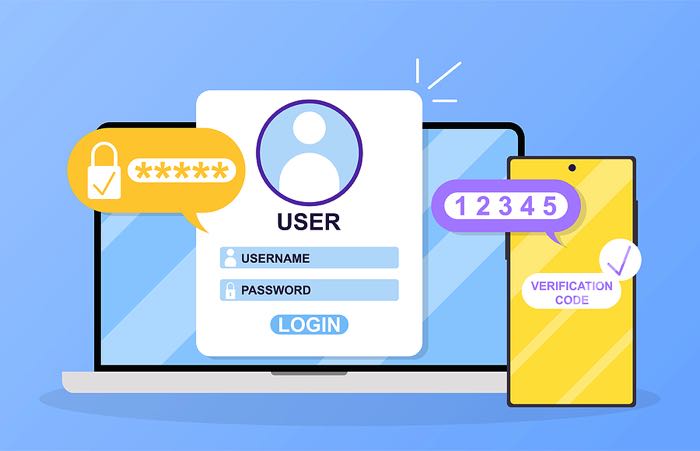
Introduction to Account Verification
Verification is a standard procedure if a bookmaker on the high street suspects someone of being underage. A quick check of the individual’s ID confirms their age, allowing them to proceed with betting activities. However, online betting involves more stringent checks due to the ease of misrepresentation in the digital world. This article delves into the necessity of “Know Your Customer” (KYC) protocols employed by online bookmakers.
Why is Account Verification Crucial?
Bookmakers are mandated by both international and local authorities to carry out verification checks on their clients. The primary aim is to prevent underage individuals or those who have self-excluded from gambling from accessing betting services. The digital nature of the internet simplifies the act of misrepresenting age, making rigorous checks essential.
Moreover, verification safeguards user accounts from being exploited for illicit activities like money laundering. It ensures the security of funds and verifies that users do not maintain multiple accounts on the same site.
UK Account Verification Process for Online Bookmakers
In early 2019, the United Kingdom Gambling Commission implemented new age verification regulations for all UK-licensed gambling operators. Previously, identity verification was required only before withdrawals. Now, verification must be completed before the user can make a deposit or place their first bet, including those made with free bets or promotions.
The verification process involves submitting specific documents such as a national ID card and bank statements. Despite potentially delaying immediate access to gambling, many reputable platforms perform these checks swiftly.
International Verification Process for Legal and Offshore Bookmakers
Similar to the UK, other licensing authorities worldwide mandate that bookmaker sites verify the age and identity of players before they can withdraw earnings. Players might need to provide a utility bill, proof of address, or a photo ID based on the site’s requirements.
The Know Your Customer (KYC) Process
The KYC process begins by creating an account on the betting site. This includes:
- Visiting the site and selecting the sign-up option.
- Filling out the necessary details such as email and phone number.
- Completing the registration process.
- Verifying the email address via a link sent to the provided email.
After registration, you should navigate to the “Profile” section and select the “Verification” option to submit the required documents for identity verification. It’s important to note that the specifics of the KYC process can vary between sites.
Verifying Your Identity
The fundamental reason for identity verification is to prevent underage gambling, which is straightforward to monitor in a physical location but not so in an online setting. In the UK, gambling is restricted to individuals aged 18 and over. Licensed operators are required to verify age before allowing deposits, betting, or withdrawals. If your details are on the electoral roll, age verification can often be automated. If not, you will need to provide a proof of age, such as an identity card.
Document Requirements for Online Gambling Verification
Essential Documents for Identity Verification
To verify identity and ensure compliance with regulations, licensed gambling sites may request various documents from users. These typically include:
- Bank Statements: Recent statements dated to a specific timeframe to confirm financial stability.
- Utility Bills: A recent bill to verify your residential address.
- Credit Card Information: Details for transactions and to confirm ownership.
- Driver’s License or Other ID Forms: Official identification to confirm identity and age.
For online gambling, these documents must be submitted electronically. Many betting sites provide a secure portal for uploading these files, while others may require documents to be sent via email.
Understanding the Verification Process
It is vital to review the verification requirements detailed on the gambling site before registration to fully understand the process involved.
Source of Funds (SOF) and Wealth Checks
Regulations like those from the UK Gambling Commission necessitate that players prove their source of income to prevent issues such as money laundering. This verification also helps ensure that players gamble within their financial means, addressing concerns related to problem gambling behaviors.
For high rollers or sudden increases in betting amounts, source of wealth checks become crucial. For instance, a player who typically bets modest amounts but suddenly deposits and wagers large sums might trigger a verification process. Required documents could include:
- Bank Statements
- Payslips
- Tax Returns
- Screenshots from Payment Systems
Additional Verification for Withdrawals
Before you can withdraw winnings, additional verification is required to ensure that the funds are being released to the correct person. This may involve:
- Proof of Identity: Such as a driver’s license or another government-issued ID.
- Proof of Address: Typically a recent utility bill.
- Bank Card Copies: For those using debit or credit cards, copies of the front and back may be necessary.
Common Challenges with Account Verification
Despite the necessity of KYC procedures, they can present challenges:
- Duration of Verification: The process can vary in length, taking anywhere from a few hours to weeks, depending on the technology the operator uses.
- Technology Dependence: Without automated systems, verification can be slow and cumbersome.
- Player Inconvenience: Delays can frustrate players, potentially driving them to seek other gambling platforms.
Operators who fail to adhere to these verification processes risk heavy fines and, in severe cases, revocation of their licenses. As the gambling industry continues to evolve, maintaining efficient and user-friendly verification processes remains a critical priority for both operators and regulators.
Strategies for Smooth Account Verification at Online Bookmakers
Ensuring Quick Verification
Every bettor prefers a swift transition from signing up to placing bets, as well as receiving prompt payouts. Therefore, it’s beneficial to select gambling sites known for efficient verification processes. Reviews on platforms like Bet Guru 365 can provide insights into the bookmakers’ verification timelines and gambling terms.
Accuracy in Registration
When registering, it is critical to ensure the name on your account matches exactly with the name on your identification documents. Discrepancies in information can lead to delays in the verification process. Additionally, having all required documents ready before signing up can streamline the process, as you won’t need to scramble to find them when requested by the operator.
Conclusion
The immense growth of the sports betting industry has not only increased its financial turnover but has also heightened the risk of financial crimes such as money laundering. Consequently, regulatory bodies have intensified their focus on online gambling platforms.
Criminals often attempt to launder illicit funds through these platforms by “cleaning” the money through deposits and withdrawals. Robust KYC procedures help combat this issue, as well as prevent underage gambling. While these checks may seem cumbersome, they are essential for maintaining the integrity and safety of online betting.
FAQ – Navigating Betting Site Verification Checks
- Why do I need to verify my bookmaker account?
Verification combats fraud and prevents money laundering, ensuring that all bettors are of legal age and not prohibited from betting. - Can I deposit funds without verifying my identity?
While some platforms might allow deposits without prior verification, UK licensed sites require completion of the verification process before funding your account and placing bets. - What documents are required for bookmaker verification?
Typically, you will need to provide a government-issued ID and proof of address, like a recent utility bill. - Are account and ID verification the same?
While often discussed together, they are not identical. Account verification might simply mean confirming contact details, whereas ID verification involves proving your identity to the operator. - How long does it take to verify an online betting account?
Verification time varies by site; some might complete the process within hours, while others could take days. - Can I withdraw money without verifying my identity?
No, withdrawal without identity verification is not possible on licensed betting sites, as it is a crucial anti-money laundering measure. - Is it possible to open a betting account in someone else’s name?
This practice is strictly prohibited and could lead to account suspension and further legal action. - What should I do if I fail verification?
If verification fails despite providing accurate and legal documents, contact customer support for guidance or consider registering with another site. - Can I hide some confidential data during verification?
Transparency is essential in the verification process. Concealing information can result in the rejection of your verification. - Why is a bank statement required for verification checks?
A bank statement helps the operator assess your financial capacity for betting, ensuring that your betting behavior aligns with your financial status. - Is it safe to provide personal details to online gambling sites?
Providing personal information is safe when dealing with licensed operators. Always opt for sites regulated by respected authorities like the UKGC for enhanced security.







